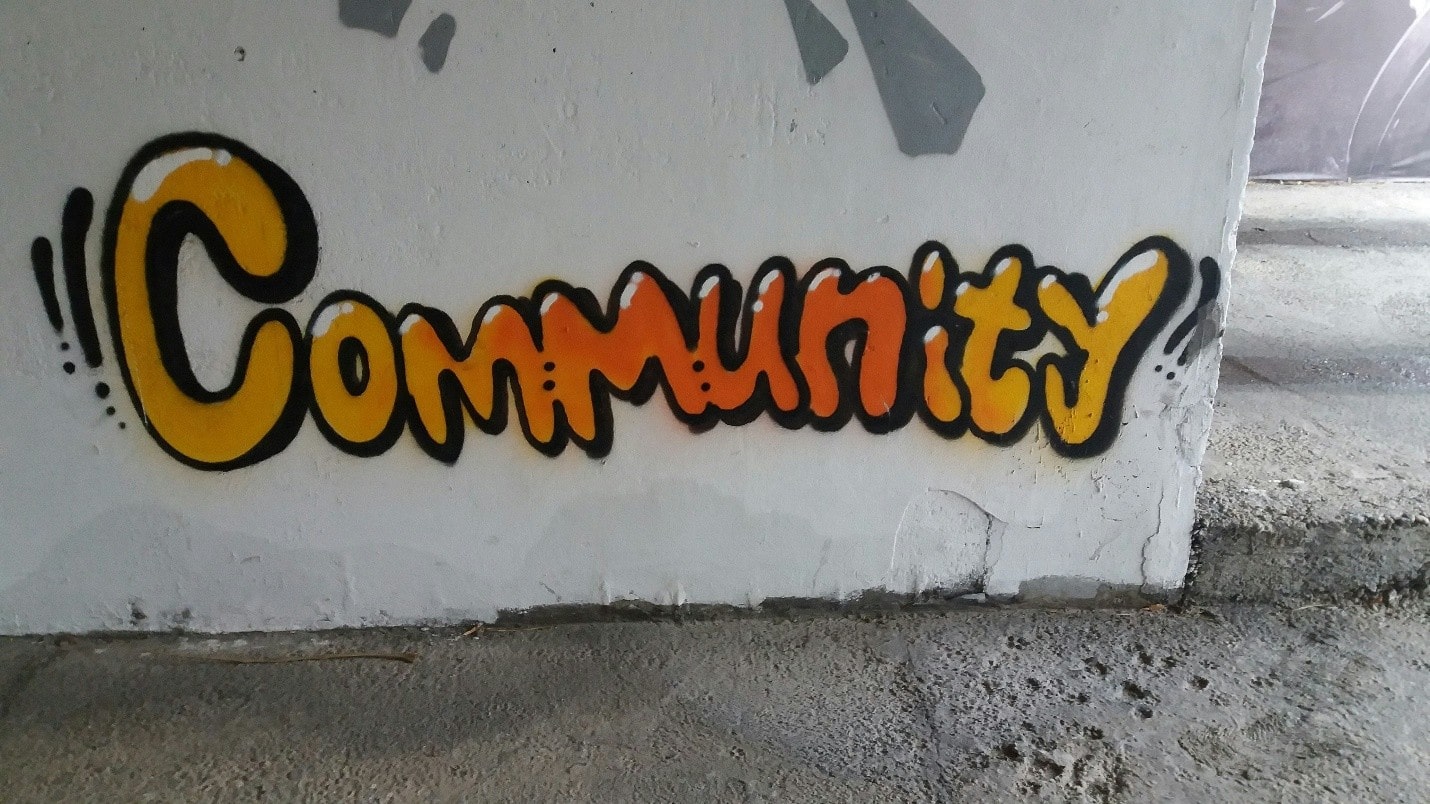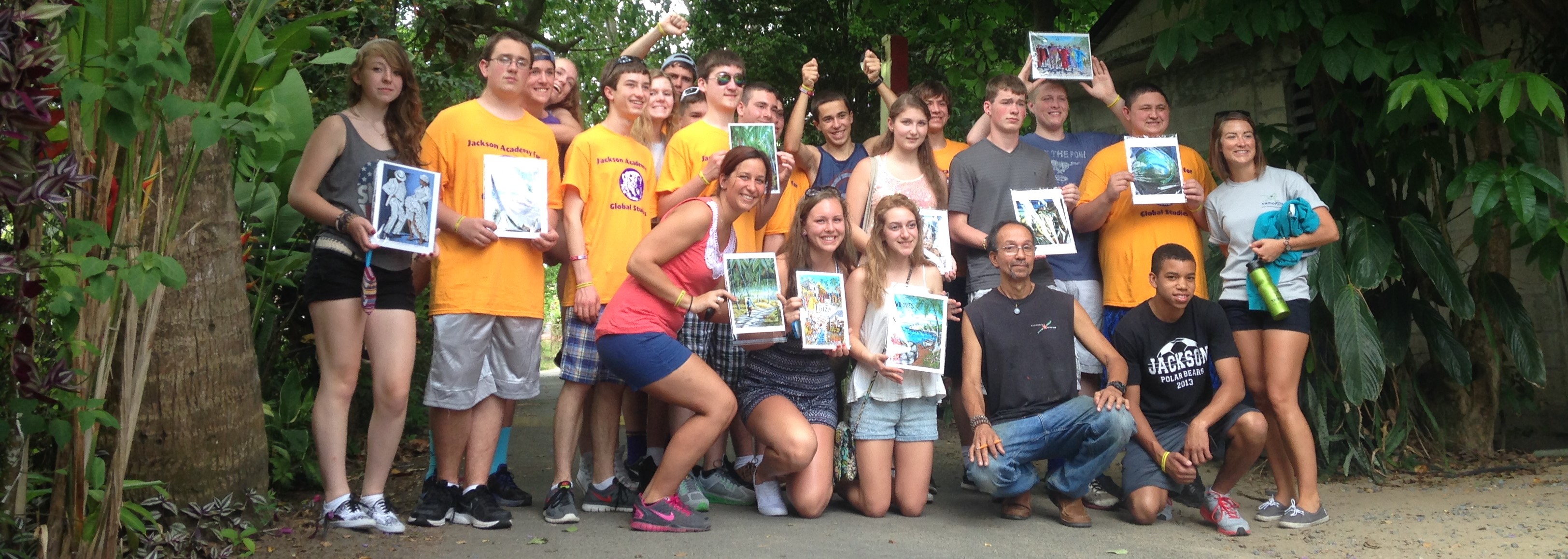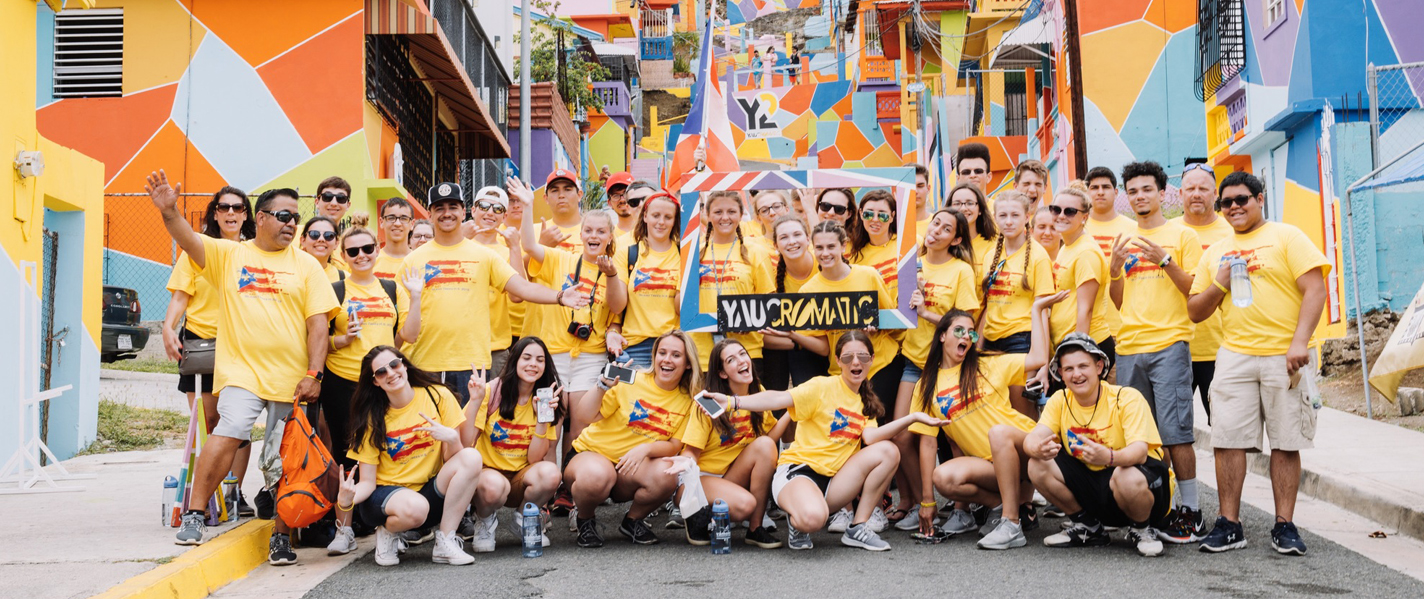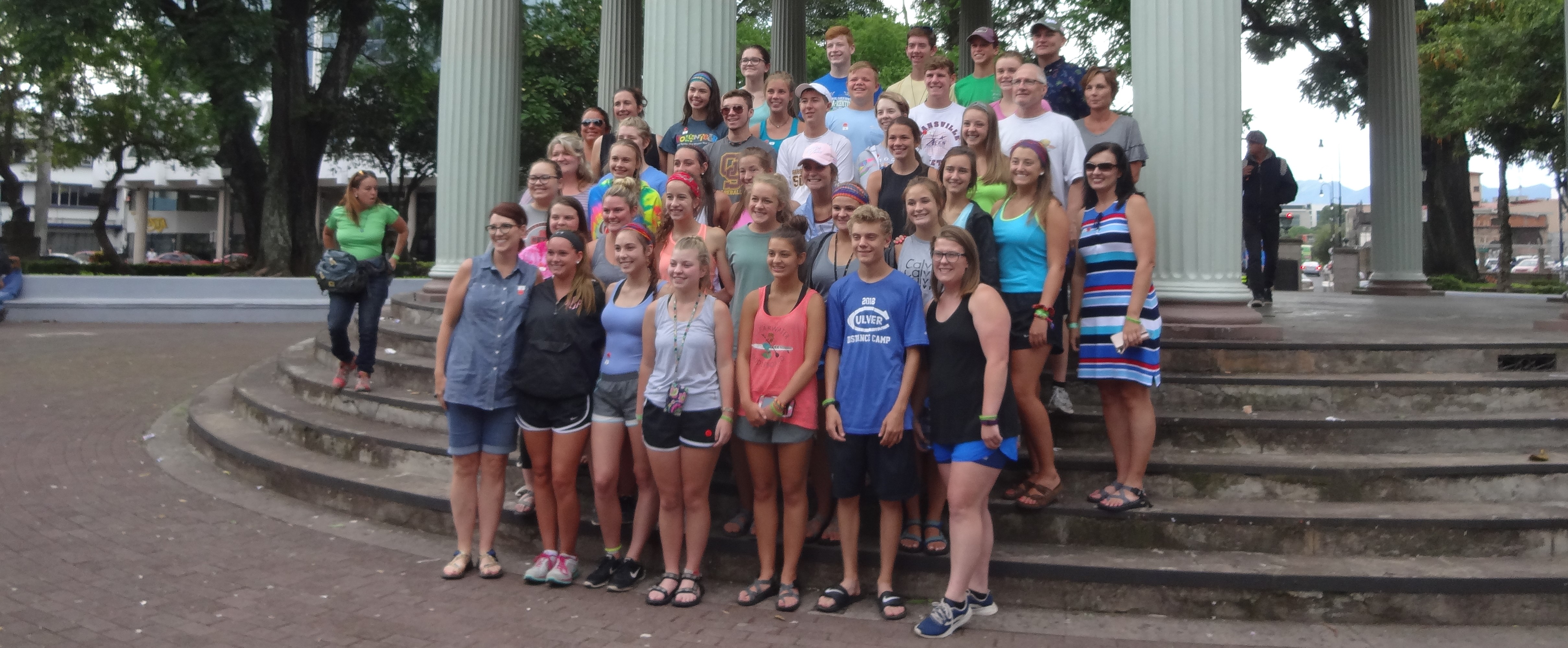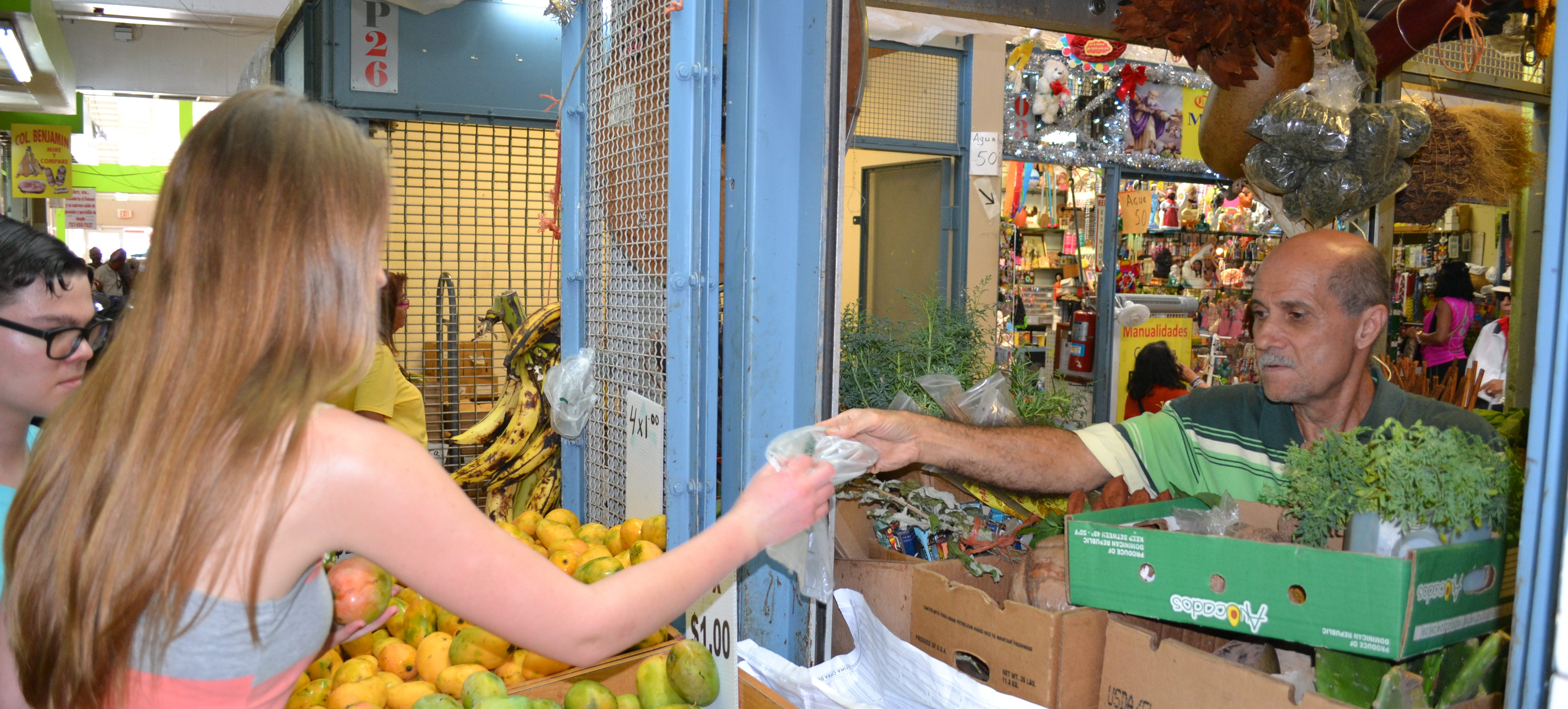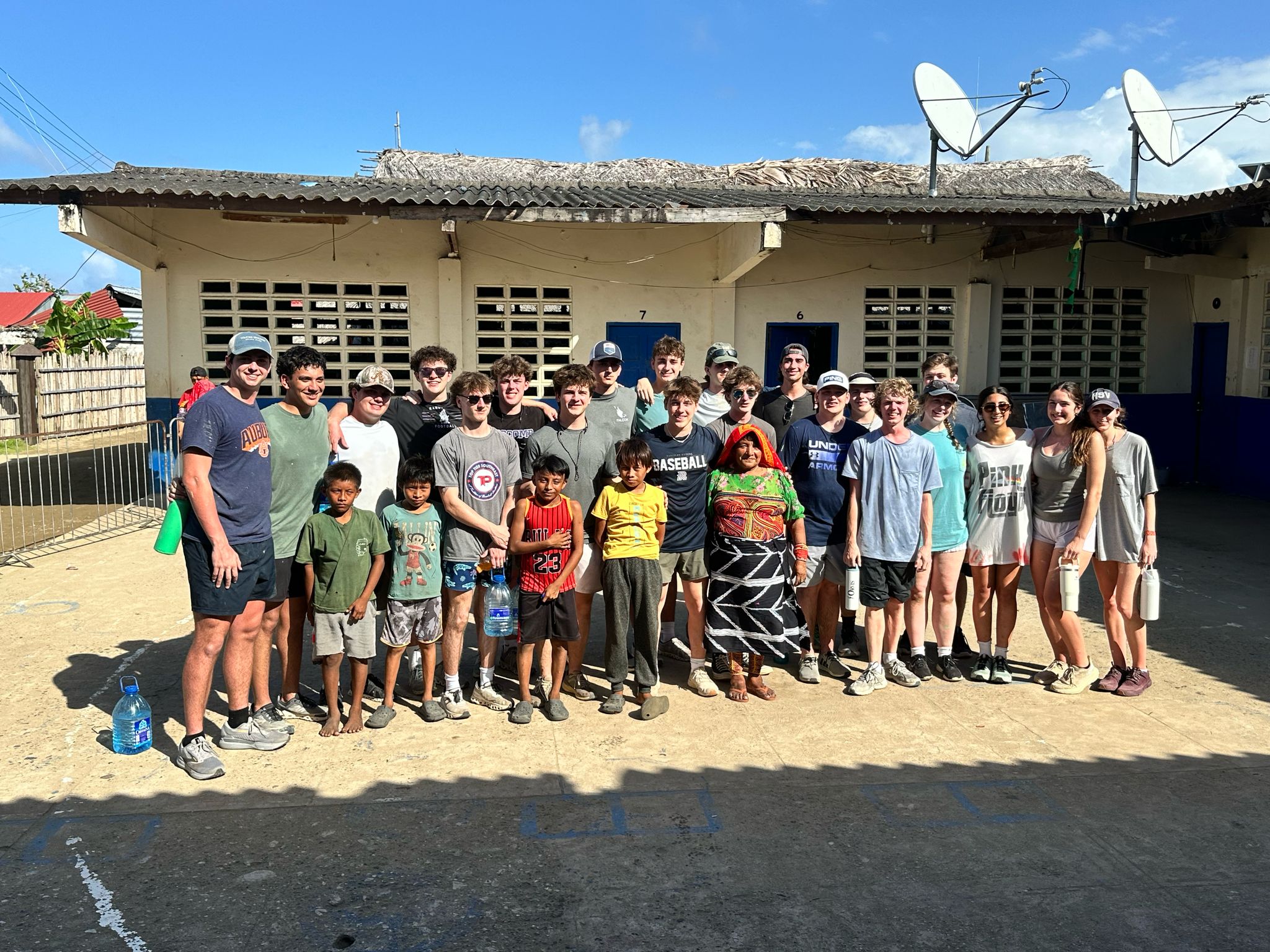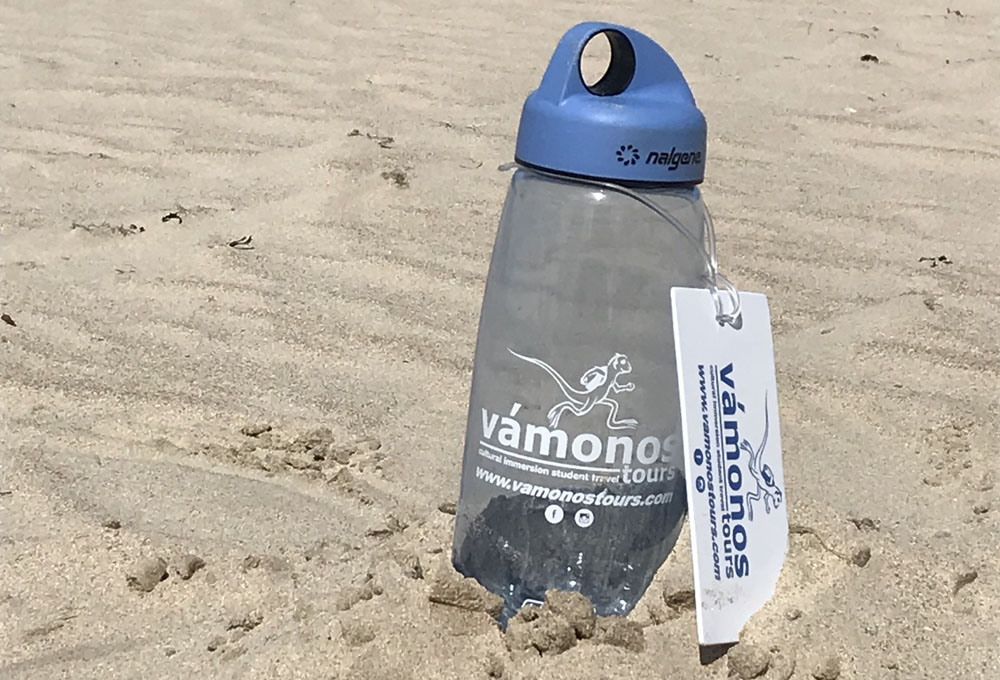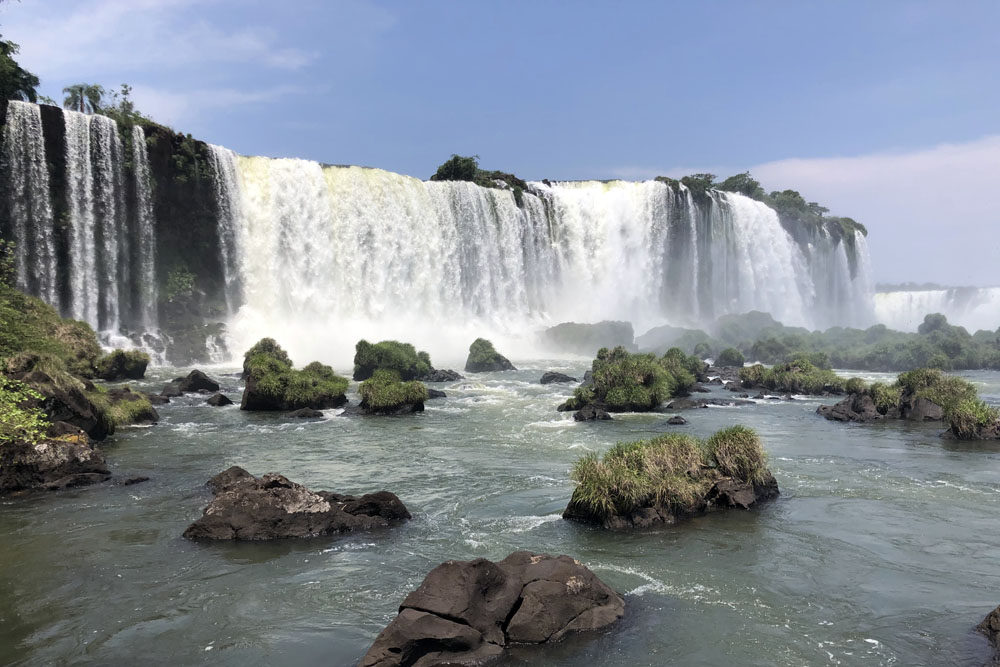How Educational Travel Transforms Student Learning (and Why It Matters More Than Ever)
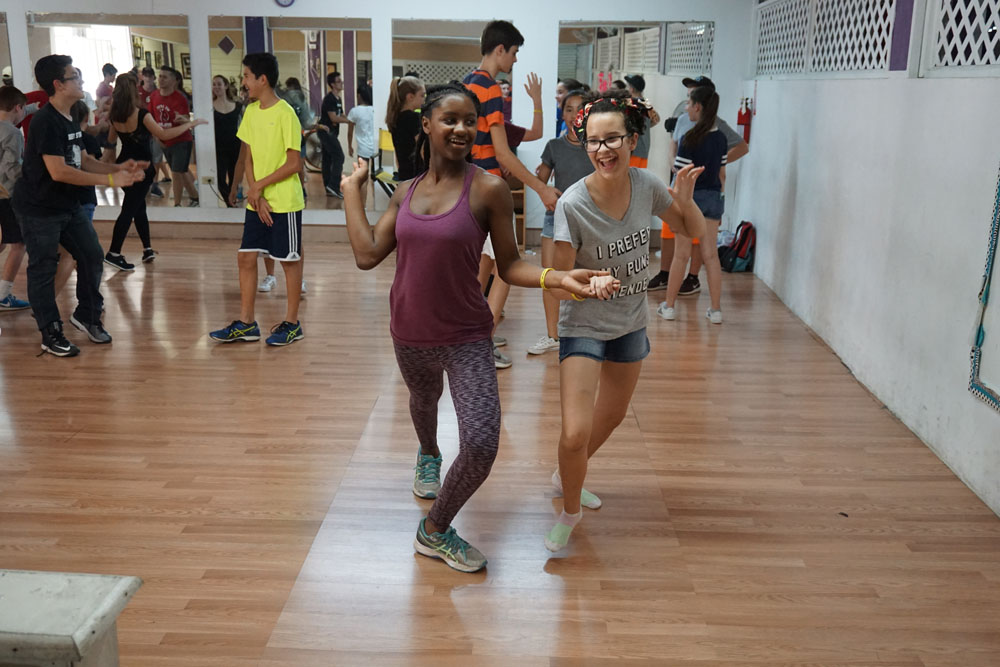 November 6, 2025
November 6, 2025Beyond the Classroom: The Making of a Global Citizen
Textbooks and digital lessons can explain what the world looks like. Travel allows students to step inside it, hear the languages, taste the food, and experience daily life in a way no screen or chapter can fully capture.
When a student hears a new language spoken around them, notices unfamiliar architecture, watches people interact differently, or sees skin tones, hairstyles, food, and traditions that are different from their own, the brain does something powerful. It shifts from studying the world to belonging in it.
The moment a student eats a homemade meal in a Puerto Rican home or speaks Spanish with someone their own age in the Dominican Republic, or snorkels in the Galápagos among species found nowhere else on Earth, they are not just tourists. They are participants in a shared human story.
That is the true power of educational travel. It trains young people to walk into the unfamiliar with curiosity and respect.
Why Travel at a Young Age Matters
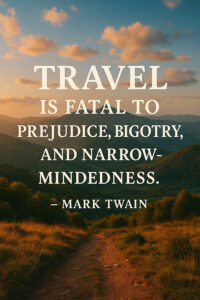
Middle and high school students are still building their understanding of identity and place in the world. When they encounter people who look different, dress differently, believe differently, or learn differently, they begin to understand that normal is not universal. It is cultural.
This is where real education begins. It is incredibly beneficial at an impressionable age to realize that there is a wider world outside the one you are born into.
The best cultural immersion trips are intentional about this. Instead of keeping students on buses and behind cameras, they bring them into daily life. That may mean learning bomba dance from locals, practicing Spanish at a market, participating in a service project in rural Ecuador, or sharing a meal with people who live without the conveniences many U.S. students take for granted.
When students see other not as exotic, but as human, they grow in empathy, humility, and global thinking. These are the traits that build future leaders.
CONTACT US
More Than a Trip: Skills Students Take Home
Educational tour companies with strong programs, like Vámonos, understand that travel is not only about where students go, but who they become.
| Skill Developed | How Travel Builds It |
| Independence and Responsibility | Packing, budgeting money, being on time, navigating group travel |
| Cross-Cultural Communication | Conversing with locals, learning nonverbal cues, practicing bilingual language skills |
| Adaptability and Problem-Solving | Plans change, weather shifts, luggage gets lost, and students learn flexibility |
| Confidence and Identity Growth | Trying new activities, speaking publicly, ordering food in a new language |
| Cultural Intelligence | Understanding other values, other traditions, and other belief systems without comparison or superiority |
A student who has interacted with people from different socioeconomic backgrounds, different skin colors, different faith traditions, and different histories becomes someone who can respectfully navigate a diverse workplace and world.
Travel is not just academic enrichment. It is human development. Read The Psychology of Awe: A Gateway to Growth.
What Makes a High-Quality Educational Travel Experience?
Not all educational travel companies design programs that build this kind of growth. The best ones prioritize immersion, safety, and meaning, not just sightseeing.
Key features include:
- Centrally located hotels so students spend time experiencing culture, not sitting on a bus
- Delicious local meals instead of generic cafeteria food or fast-food chains
- Knowledgeable bilingual guides who understand both the history and the human story behind every stop
- Hands-on experiences such as whitewater rafting, ziplining, dancing, service work, or snorkeling near wildlife in the Galapagos
- Customizable itineraries that allow teachers to shape learning priorities
- Complete logistical support such as flights, hotels, and emergency coordination while still leaving room for authentic choices like restaurant selection, daily schedules, or academic focus
For example, Vámonos provides full support with flights, lodging, transportation, and safety, yet gives teachers flexibility to choose how each day unfolds. Students benefit from structure, but still experience the world in a genuine, unscripted way.
Why Experiencing “Other” Is Necessary for Real Learning
 Students are less likely to grow into compassionate adults if they never experience perspectives outside their own. They are less likely to develop cultural respect if their only exposure to another country is through media stereotypes or textbook summaries.
Students are less likely to grow into compassionate adults if they never experience perspectives outside their own. They are less likely to develop cultural respect if their only exposure to another country is through media stereotypes or textbook summaries.
Educational travel places students in front of real people with real lives, not generalized categories.
They meet children who speak different languages, families who celebrate different holidays, communities who face different challenges, and individuals whose skin, faith, habits, humor, and values all expand a young person’s understanding of humanity.
Once a student has shared a conversation with someone whose life looks nothing like their own, they can no longer say “those people.” They begin to say, “my friend in Puerto Rico” or “the family we met in Quito.”
That shift affects how they vote, how they lead, how they work, and how they treat people for the rest of their lives.
Real-World FAQs About Student Travel
What age is best for educational travel?
- Middle School (Grades 5–8): Best for first-time exposure to new cultures. Ideal for trips with service-learning elements and language immersion.
- High School (Grades 9–12): Best for deeper academic and global citizenship experiences. Great for more ambitious destinations such as Galapagos tours from Quito, Ecuador or intensive history and arts programs.
- College and Gap Year: Best for long-term immersion, internships, or advanced language and cultural study.
Are school trips only for wealthy students?
More schools and educational tour companies now offer payment plans, fundraising programs, scholarships, and group pricing. Access is expanding. Many schools treat educational travel not as a luxury, but as part of equal opportunity learning.
At Vámonos, we believe our role goes far beyond planning the itinerary. We are here to support every step of your journey, including fundraising. Explore our Fundraising Page for practical tips, real success stories, and ready-to-use templates.
Want personalized guidance? Your Vámonos Account Manager can connect you with Kristyn Roggelin, a former group leader and fundraising specialist who has helped countless schools make their travel goals a reality.
Do trips really build real-world skills?
Yes. Airports, foreign currency, schedules, changing plans, decision-making, and cultural etiquette are training grounds for adulthood. Students return home more confident, independent, and self-aware.
What Can Educational Travel Do For Me?
Educational travel is not just a break from school. It is school, at its fullest expression.
It teaches geography through footsteps, biology through coral reefs, language through conversation, and compassion through connection.
The world is already global. Student learning should be too.
Students who experience the best cultural immersion trips do not just come home smarter. Cultural immersion tours change how they see themselves and the world.
